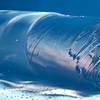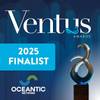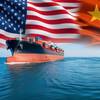Infrastructure among top hurdles for LNG marine fuel adoption.
The shipping industry may adopt liquefied natural gas (LNG) as a fuel faster than expected because of stricter environmental regulations that target carbon dioxide emission, according to an executive at maritime agency Bernhard Schulte Shipmanagement (BSM).
The Energy Efficiency Design Index (EEDI) regulation enacted by the International Maritime Organization (IMO) in 2013 will require newly built ships to emit less carbon dioxide (CO2) and that will drive shippers to move toward LNG as a fuel when placing orders for new vessels, said Angus Campbell, corporate director energy projects at BSM.
"CO2 is the new reality for shipping," Campbell told Reuters in an interview.
The EEDI directs that from 2013 newly built ships will have to become more progressively more fuel efficient so that they release 30 percent less CO2 on a tonne-mile basis by 2025 than at the beginning of the period covered by the regulations.
"We're going to see over time shipyards will have to become proponents of cleaner fuels because there are only so much efficiency gains you can get by making the ship more hydrodynamic and engines more efficient," said Campbell.
The EEDI regulations are in addition to the IMO's global sulphur cap which takes effect at the start of 2020.
In addition to the IMO carbon regulations, the European Union (EU) Monitoring, Reporting, Verification (MRV) regulations that began in 2015 to reduce CO2 emissions starting in 2019 will also push the marine industry to adopt cleaner burning LNG.
The MRV is designed to sweep the shipping industry into the same emissions trading systems that other industries in Europe are subject to and affects all vessels trading to any European port, said Campbell.
"The MRV regulations have teeth and will be enforced... people have to take this very seriously," said Campbell.
"(LNG as a shipping fuel) will happen rather more quickly because of initiatives like the EU's MRV regulation which are putting the spot light on CO2 emissions, not just nitrogen oxides, sulphur oxides and particulates," he said.
A lack of supply infrastructure remains one of the largest hurdles for the LNG marine fuels industry.
"Ship owners are looking for certainty on LNG supply and infrastructure and those of us looking at developing the infrastructure are looking for people to order (LNG-powered) ships," said Campbell.
By Roslan Khasawneh











